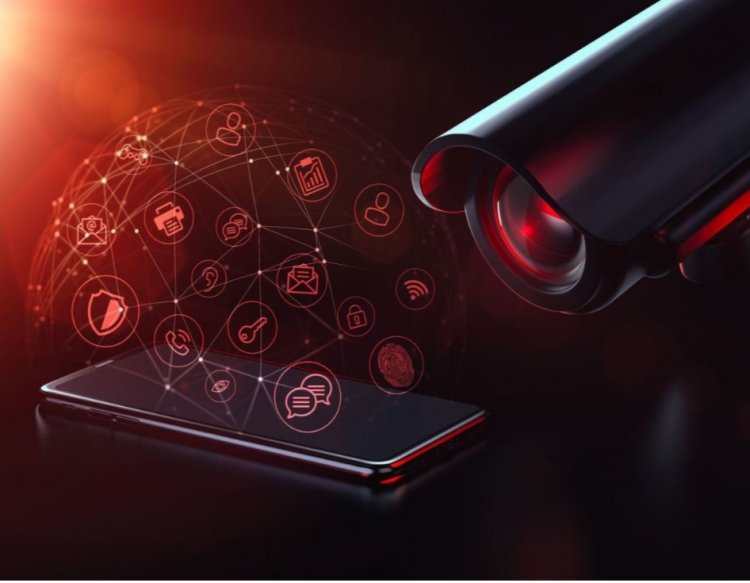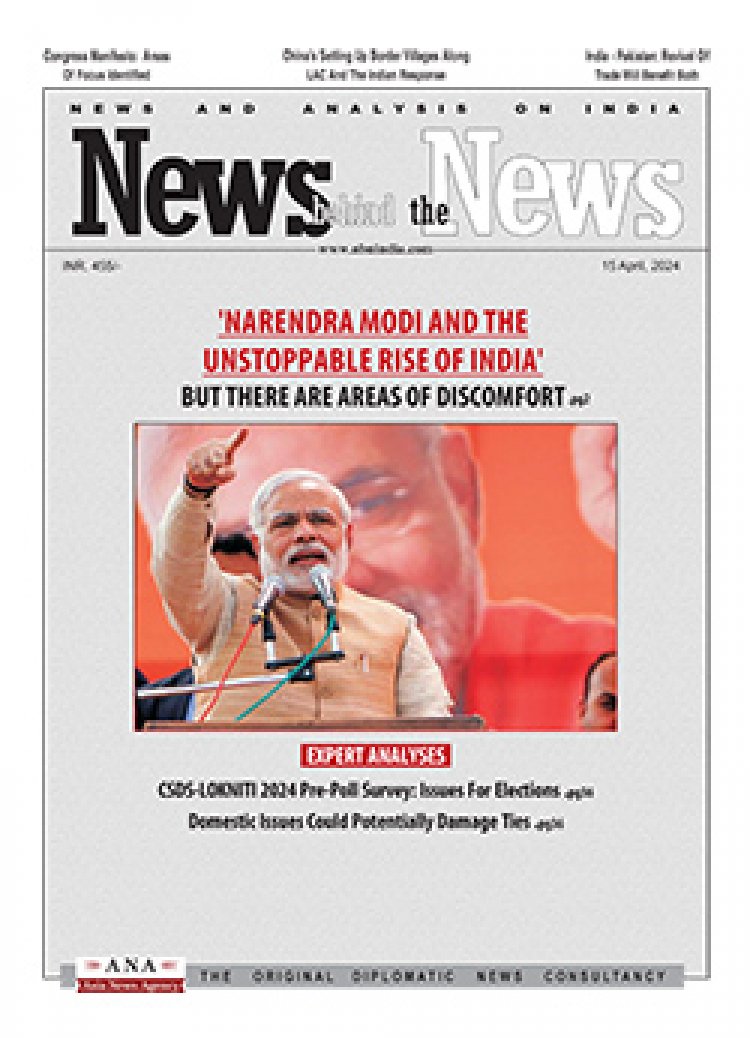A SPY IN MY PHONE
Amulya Ganguli

Since snooping is a part of official functioning, it is not surprising that an all-mighty row has broken out between the government and the opposition over reports that an Israeli spyware called Pegasus is believed to have “infected” the mobiles of several important people.
It is not only the government’s opponents who are the victims, but also a few in high places, including the present Information Technology minister, Ashwini Vaishnaw. After the revelations were made, both Vaishnaw and his predecessor, Ravi Shankar Prasad, claimed that the government’s hands were clean and that it was being unfairly defamed. Needless to say, the opposition is not satisfied and is insisting on an impartial probe by a credible agency such as the Supreme court.
It is difficult to say how the issue will pan out since the two opposing sides are evidently talking at cross-purposes. But what is undeniable is that yet another controversy has erupted which has raised the political temperature. While the opposition has found an occasion to accuse the government of spying on its critics, who include politicians, journalists, academics, activists, a former Election Commission official who had found the prime minister guilty of violating the code of conduct, and the relatives of a judge accused of sexual misconduct, the government is charging the opposition of maligning the country and holding parliament to ransom by its intemperate tactics. They are disruptors and obstructers, as home minister Amit Shah has said.
The average citizen may not be too bothered if their phones are bugged as long as it continues to function. In fact, he or she may not even know that the phone harbours an unwanted guest. It is only the West Bengal chief minister, Mamata Banerjee, who has taped her phone to prevent any “illegal” entry. But the activists on the Left-Liberal side of the fence will continue to be keen on ascertaining the kind of data which may have leaked out about their activities while the political commentators will try to find out how the spyware infiltrated the digital system.
If the government is being truthful in its denial of any clandestine role, is a rogue agency responsible or a foreign power ? The suspicion is high because the spyware is prohibitively expensive. Only governments can afford it. Moreover, the makers of the device say that they sell it only to governments or their agencies. Reports suggest that 51 per cent of the buyers of Pegasus are intelligence departments, 38 per cent are law enforcement organizations and 11 per cent are the military.
It is clear that no clear answer as to who acquired Pegasus to spy on Indians will be available unless there is a thorough investigation. However, during the pendency of the probe, both the government and the opposition will be on tenterhooks – the former because of the apprehension about a disclosure which can be politically damaging and the opposition because of the hope that a disconcerting exposure will put the government on the mat.
What the episode shows, however, is how nervy the world is becoming in the technological age with the possibility of cyber attacks crippling computers and secretly implanted devices listening to conversations to make a mockery of privacy and investing the authorities with a huge advantage in targeting those they do not like.
The age of James Bond-style espionage is over. Instead of handsome spies in tuxedos and a Walther PPK in their shoulder holsters, today’s sleuths in government service are nerds in jeans and t-shirts hunched over computers to ferret out official secrets and install electronic bugs in the phones and laptops of unsuspecting individuals. As these mechanical “insects” become more and more sophisticated, everyone’s life will be an open book for those in government service who are paid to be nosy.
Their pretext for finding out what everyone is doing is the omnipresent threat of terrorism which also has government backing in India’s neighbourhood. But that is not the only reason. The ruling dispensations also like to know if their position is threatened by political conspirators at home so that pre-emptive action can be taken against them to neutralize their offensive.
The utility of Pegasus is obvious in this context. However much the opposition leaders may accuse the government of using the spyware to undermine privacy and endanger the concept of an open and free society, there is little doubt that no ruling party will willingly forgo an opportunity to acquire and use an intrusive “weapon” of this nature both against external enemies and internal political adversaries. Although governments have the legal right to snoop under specific conditions and in accordance with established procedures, a secret armament in their arsenal will always be welcomed.
It appears, therefore, that the run-up to next year’s assembly elections will be marked by whatever comes to light about Pegasus as the probes get underway. In cases of this sensitive nature, the ruling party is usually at a disadvantage because the people, in general, tend to disbelieve its denials. The BJP will be on edge, therefore, because U.P. is among the states which will go to the polls. The party has to win in this state if it wants to approach the next general election with confidence.
Interestingly, there will also be an investigation in France into the allegation that President Emmanual Macron had been targeted by Pegasus along with two reporters. With a French judge simultaneously looking into the Rs 59,000 crore Rafale deal with India, the news from France as well as India are likely to keep the political class on its toes.
















